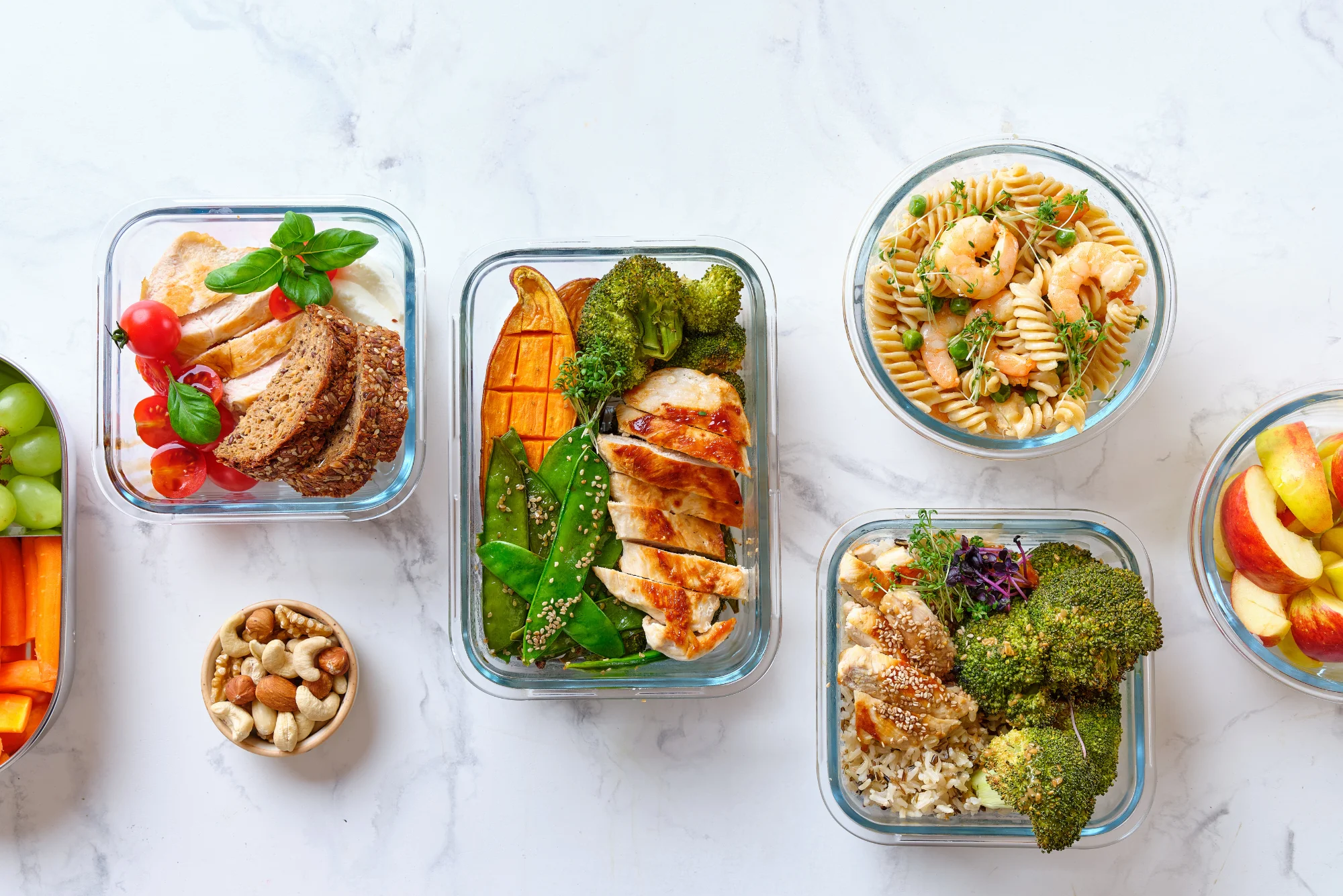
Growing up in the land of sweet tea and even sweeter traditions, Radley Griffin, M.D., had his first cup of coffee when he was 5 years old.
It was a ritual, after all, that he often shared with his five brothers. Dr. Griffin’s grandmother owned a restaurant, so all the boys would often visit her there to slurp up the delicious tandem of dessert and a cup of coffee with cream.
Griffin’s first jolt of java wasn’t a one-cup wonder, as it’s still his go-to drink throughout the day.
“It’s such a wonderful pick-me-up taste,” says Dr. Griffin, Griffin Concierge Medical (GCM) Founder and CEO. “That caffeine and coffee just make me smile—and generally makes me feel terrific.”
It wasn’t just the habit that stuck. It was his grandmother’s lesson that also did (as mee-maw missives often do). She told the boys this: There’s no need to put sugar in your coffee with dessert, since that treat already has plenty of sugar. Enjoy the taste of coffee for, well, the taste of coffee.
“That really carried me into adulthood,” Dr. Griffin says.
It was an insight, of course, that had many layers. Besides being a tongue-tickling endorsement of coffee, the wisdom also centered around how you don’t need as much sugar as you may think you do.
Dr. Griffin’s early experience with—and love for—coffee really taught him something vital about the role of food in our lives. How do you find the foods that make you feel good, make you happy, and make your body feel like it has rocket-engine amounts of energy? And how do you differentiate those foods with the ones that may give you a fleeting jolt of joy but also make your body function like its battery will run out of juice in 5, 4, 3, 2….?
Ideally, our best approach to eating means that we consume foods that give you pleasure but don’t detract from your overall health, your energy levels, and your ability to function optimally every day.
At GCM, we can help you navigate some of the trickier nutritional challenges of today, and we customize our recommendations so you can best leverage flavor in your favor. So let’s look at three of the more common consumption questions you might have.
Caffeine: How Much is Too Much?
You know caffeine as the stimulant found naturally in coffee, tea, and cocoa plants, but you also know it because it’s been the star of the massive energy-drink industry. Many of us, certainly, use it as a morning (and afternoon) pick-me-up.
Inherently, there’s nothing wrong with caffeine. But it can certainly disrupt your sleep, depending on when you consume it, as well as contribute to feeling jittery or making your heart race.
If you’re like Dr. Griffin and love the taste of coffee, there’s likely nothing wrong with having caffeine—even as a constant drip throughout the day, as long you don’t experience any adverse effects from it. Our guidelines for caffeine consumption:
- Choose caffeine that exists in nature, like coffee, tea, or dark chocolate, rather than energy drinks or soft drinks. If you’re chugging those sugary alternatives, you risk developing other health problems; an excessive need for caffeine could also be a sign of other underlying issues that may need to be addressed, Dr. Griffin says.
- Most folks won’t guzzle 12 espressos before noon, so in general, you probably don’t need to monitor your caffeine intake to the milligram. But (there’s always a “but,” isn’t there?) it’s worth looking at any underlying conditions or symptoms that could come from caffeine and that can influence your health or day-to-day life (ultra-jittery tends to be a life disruptor, rather than a life enhancer). Your GCM physician can look at your full bloodwork and do cardiac testing to look at any potential interactions with caffeine.
An interesting new study shows that the levels of caffeine in your blood may be associated with your risk of developing diabetes and heart disease, as well as how much body fat you carry—the early conclusion being that higher caffeine levels in your blood are helpful. It’s still early, so we’ll keep an eye on this research as it develops.
Sugar: What Do I Do If I Have a Sweet Tooth?
In his childhood and into his adulthood, Dr. Griffin’s sweet tooth was Megalodon-sized. His father owned a drug store, so candy bars and gum were at his disposal (Dr. Griffin could tear up some Snickers and Mars bars back in the day). In addition, his family owned a vending company, meaning that he had plenty of access to sweet foods and drinks.
Having a bit—a soda here, a chocolate bar there—was just a normal part of eating, as it has been for so many of us. In fact, these sugar grenades were so ubiquitous in stores and in our diets that they basically felt like another food group (vegetables, meats, Cap’n Crunch).
It wasn’t until Dr. Griffin started treating diabetic patients and reading Gary Taubes’s book, Why We Get Fat, that it became clear: Eliminating the added sugar and processed foods from your diet could have a dramatic and tangible effect on your health. For so long, Dr. Griffin says, fat was the macronutrient that was unfairly demonized for being the cause of such things as high cholesterol, heart disease, and weight gain. Instead, what he saw was that the blood-sugar levels of diabetic patients would plummet when they eliminated sugar from their diets.
It was profound—not just as a message, but as something that showed real and swift effects on our overall health.
“I have never felt such conviction and confidence in my nutritional advice as I did with the elimination of sugar from a person’s diet—just to see an impact on not only their waistline but also their bloodwork,” Dr. Griffin says.
Eliminating or drastically reducing sugar is the number-one thing you can do diet-wise to improve your health and diagnostic markers for many conditions. In addition to the improvements in such metrics as blood sugar and waist size, you will likely also experience energy increases, as you won’t go through the roller-coaster energy levels that happen when you tango with Twizzlers throughout the day.
Some things to think about:
- Sugar consumption varies for everyone, but if you can keep it under 15 to 25 grams a day, you will likely see the most effect on your health. For those who have essentially eliminated sugar, they find that a bite or two can satisfy a sweet craving.
- ”The taste of sugar begets more sugar,” Dr. Griffin says. So the more you eat, the more you want. But the opposite also works. The less you eat, the less you want. In fact, if you try eliminating sugar for three or four days, Dr. Griffin says, you likely will stop feeling cravings. (When Dr. Griffin eliminated sugar, he noticed an immediate feel-good effect—better energy, less fatigue, more strength.)
- To handle any urges, Dr. Griffin uses protein shakes. He finds that the satiety from one of those takes the edge off right away, and the craving vanishes. Newer medications also have an amazing impact on hormones that influence hunger and craving, and they can be a useful tool to help you, Dr. Griffin says. Your GCM physician can discuss these options with you.
Protein: Why Is It So Important?
Protein—the superpower macronutrient—is what you’ll find in meats, fish, eggs, beans, and other sources, like powders. The truth is that most of us under-consume protein, and that’s because, frankly, it’s hard to get recommended levels of protein in during a day (quadruple-decker chicken breast sandwich, anyone?).
Besides playing a huge role in satiety (so you crave those sugary fixes less often), protein is also important for helping build and maintain muscle mass, which is critical as you age. That’s because protein triggers your body to store amino acids in your muscle cells much in the way that sugar stimulates your body to store fat cells, but with an opposite effect on your body.
We generally recommend about one gram of protein for every pound of lean muscle mass you have; your GCM physician can help you identify those numbers through a body-composition tool called InBody and recommend optimum levels of protein based on that.
Protein can come from food sources, like eggs and lean meat and fish, but you will also likely have to supplement with protein powders (animal- or plant-based), since it’s much easier to consume adequate levels in a liquid form. Dr. Griffin includes protein as a main feature in meals, and he often starts and ends days with a protein shake.
Ultimately, eating for optimum health means that you should choose foods that will not only make you feel good in the moment, but also ones that fuel your body to be strong year-to-year and minute-to-minute.
“I want to be energetic and engaged,” Dr. Griffin says. “There are ingredients in our diet that can help us do that.”




